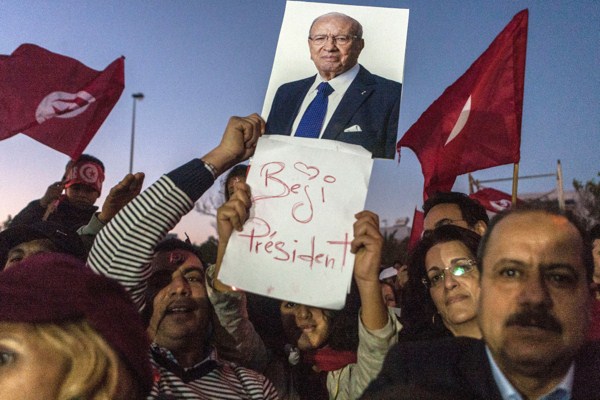Editor’s Note: This is the second of a two-part briefing on Tunisia’s elections. Part I looked at the state of democratic transition with the rise of the Nedaa Tunis party. Part II focuses on economic issues and whether Tunisia’s progress is sustainable.
Despite Tunisia’s success navigating its political transition by holding peaceful, fair elections, the challenges of keeping it sustainable remain enormous. If Tunisia’s newly elected leaders don’t deal with those challenges carefully, they could undermine the steady progress Tunisia has made over the past four years. The most alarming issue is the absence of a clear economic agenda in the election campaigns of both Beji Caid Essebsi, now the president, and his predecessor, Moncef Marzouki. In a Pew survey released in October, 96 percent of respondents said that “improved economic conditions are very important for Tunisia’s future.” Tunisia still faces enormous economic hurdles, and while both campaigns promised to focus on the economy, they ultimately left audiences confused about how exactly it would be addressed.
Although the Nedaa Tunis party has yet to form a government, the emerging alliances do not send a comforting economic message. The party closest in orientation to Nedaa Tunis’s liberal economic platform is, in fact, Ennahda, the Islamist party that has risen and fallen since the ouster of former President Zine El Abidine Ben Ali. Due to its fierce political rivalry with Ennahda, Nedaa Tunis is leaning instead toward a coalition with mostly leftist parties like the Popular Front, or Al-Jabha, which came in fourth in October’s parliamentary elections with 15 seats, and seeking the support of groups such as the powerful Tunisian General Labor Union, which prefers maintaining a protectionist economy. The ideological contradictions within such a coalition mean it would be more likely to further muddle the Tunisian economy than improve it by attracting needed foreign investment, encouraging entrepreneurship and small business ownership and engaging in aggressive banking and labor law reforms.

